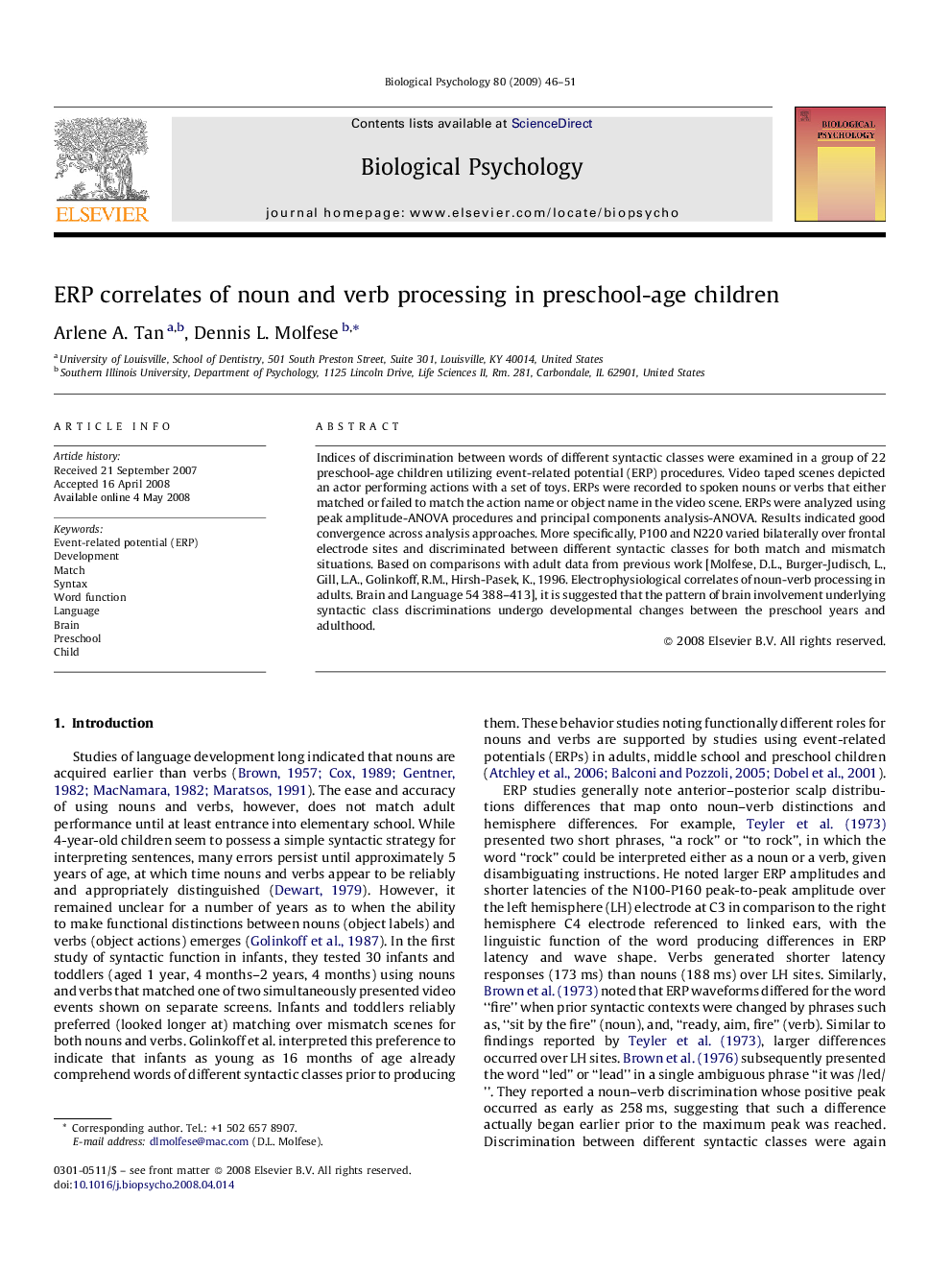| Article ID | Journal | Published Year | Pages | File Type |
|---|---|---|---|---|
| 921525 | Biological Psychology | 2009 | 6 Pages |
Indices of discrimination between words of different syntactic classes were examined in a group of 22 preschool-age children utilizing event-related potential (ERP) procedures. Video taped scenes depicted an actor performing actions with a set of toys. ERPs were recorded to spoken nouns or verbs that either matched or failed to match the action name or object name in the video scene. ERPs were analyzed using peak amplitude-ANOVA procedures and principal components analysis-ANOVA. Results indicated good convergence across analysis approaches. More specifically, P100 and N220 varied bilaterally over frontal electrode sites and discriminated between different syntactic classes for both match and mismatch situations. Based on comparisons with adult data from previous work [Molfese, D.L., Burger-Judisch, L., Gill, L.A., Golinkoff, R.M., Hirsh-Pasek, K., 1996. Electrophysiological correlates of noun-verb processing in adults. Brain and Language 54 388–413], it is suggested that the pattern of brain involvement underlying syntactic class discriminations undergo developmental changes between the preschool years and adulthood.
